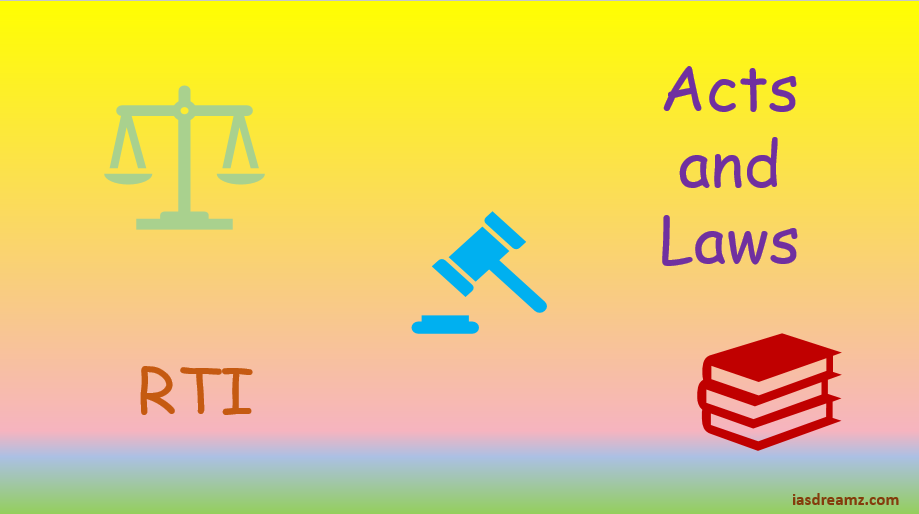Various recommendations are provided by ARC for RTI Implementation. We will begin by the acts and laws that requires RTI implementation.
‘Official Secret’ means any information the disclosure of which is likely to prejudicially affect the sovereignty and integrity of India, the security of State, friendly relations with foreign states, economic, commercial, scientific and technological matters relating to national security. It also includes: any secret code, password, sketch plan, model, article, note or document in relation to a prohibited place.
Acts and Laws for RTI implementation
For the purpose of RTI implementation effectively, the following change must take place:
- ARC recommends that the Official Secrets Act, 1923 should be repealed. It should be substituted by a chapter in the National Security Act, containing provisions relating to official secrets.
As per the Shourie Committee recommendation, if any person holding/held government office either in full/ contract is having possession/control of any official secret and communicates, without due authority to another person or uses it in a way that endanger the safety of the official secret/ shall be guilty of an offence under this section. Even the person voluntarily receiving any official secret shall be guilty of an offence under this section.

A person guilty of an offence under this section shall be punishable with imprisonment for a term which may extend to three years or with fine or with both.
- Section 123 of the Indian Evidence Act, 1872 should be amended as follows.
No one shall be permitted to give any evidence derived from official records which are exempt from public disclosure under the RTI Act, 2005.
Clauses for permission
If permitted, an affidavit should be made setting forth the reasons. The Court, after Examining the affidavit will approve of it. The Minister shall then orally:
- a) issue a summons (if not issued earlier) for the production of the unpublished official records concerned
- b) shall inspect the records in chambers; and
- c) shall determine whether the giving of such evidence would or would not be injurious to public interest.
If the Court decides that the giving of such evidence would not be injurious to public interest, the information can be disclosed.
In respect of information classified as Top Secret for reasons of national security, only the High Court shall have the power to order production of the records.
Section 124 of the Indian Evidence Act
III. Section 124 of the Indian Evidence Act will become redundant on account of the above and will have to be repealed.
Accordingly, the following will have to be inserted at the appropriate place in the Code of Civil Procedure, 1908 and the Code of Criminal Procedure, 1973
- Ministers on assumption of office may take an oath of transparency along with the oath of office. And, the requirement of administering the oath of secrecy should be dispensed with. Articles 75(4) and 164 (3), and the Third Schedule should be suitably amended.
- Safeguard against disclosure of information against the national interest may be provided through written undertaking by incorporation of a clause in the national security law dealing with official secrets.
- The Armed Forces should be included in the Second Schedule of the Act.
VII. The Second Schedule of the Act may be reviewed periodically.
VIII.. All organizations listed in the Second Schedule have to appoint PIOs. Appeals against orders of PIOs should lie with CIC/SICs. (This provision can be made by way of removal of difficulties under section 30).
The central civil services (conduct) rules
Civil Services Rules of all States and Para 116 of the Manual of Office Procedure should be reworded:
Communication of Official Information:
Every Government servant shall communicate full and accurate information, which can be disclosed under the Right to Information Act, 2005.
Nothing in this rule shall be construed as permitting communication of classified information in an unauthorized manner or for improper gains to a Government servant or others.
The State Governments may be advised to carry out similar amendments in their Manuals, if such provisions exist therein.
References:
